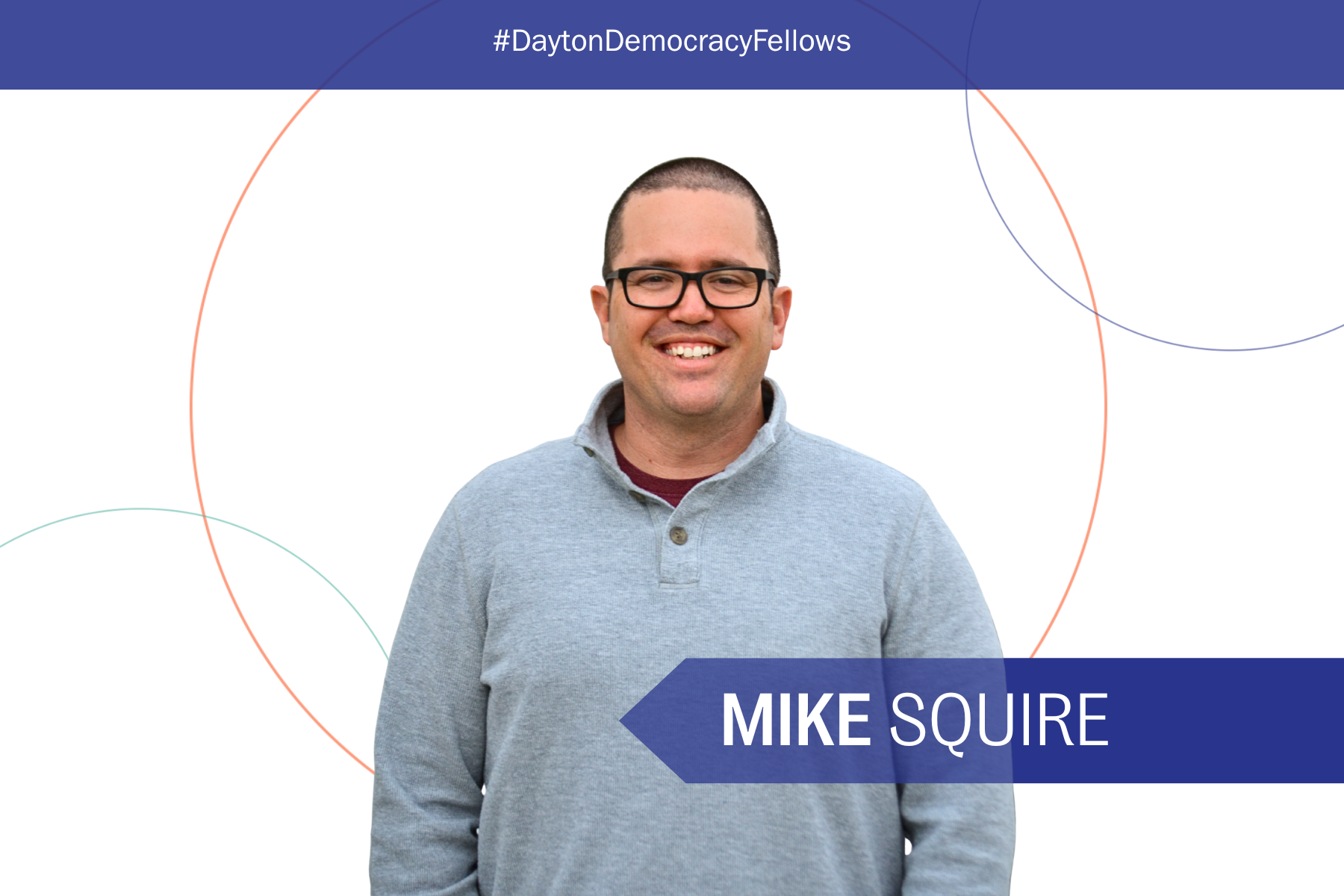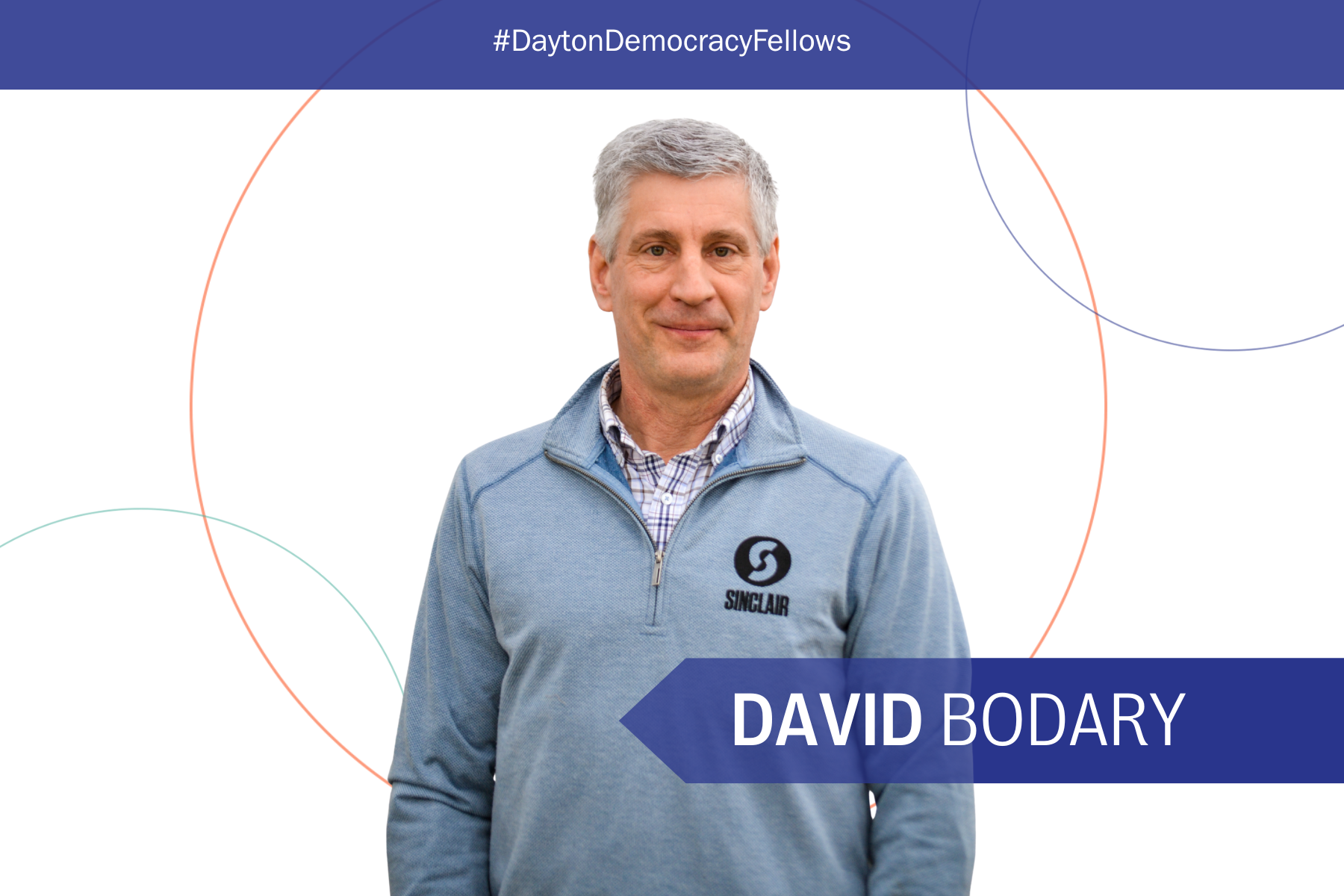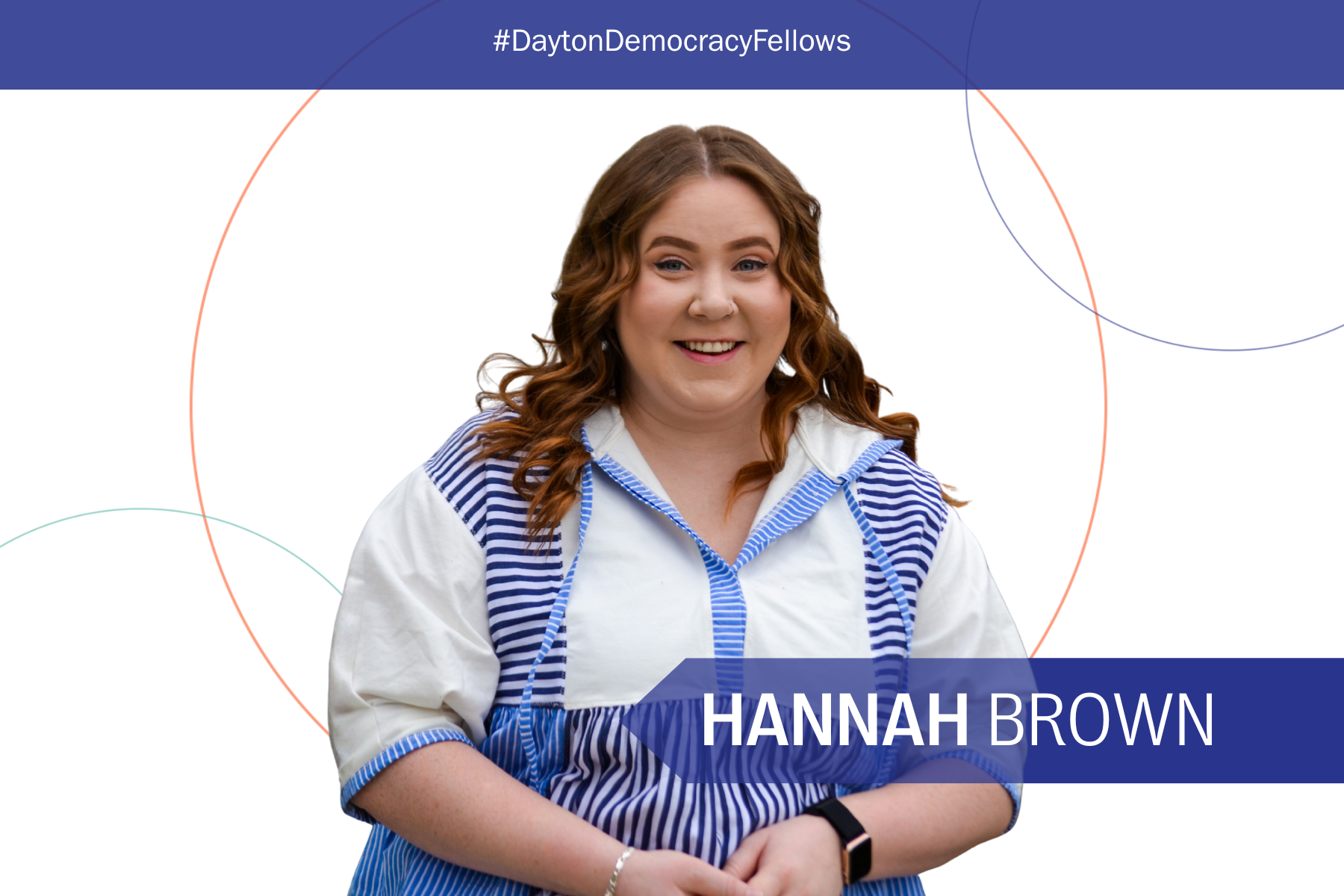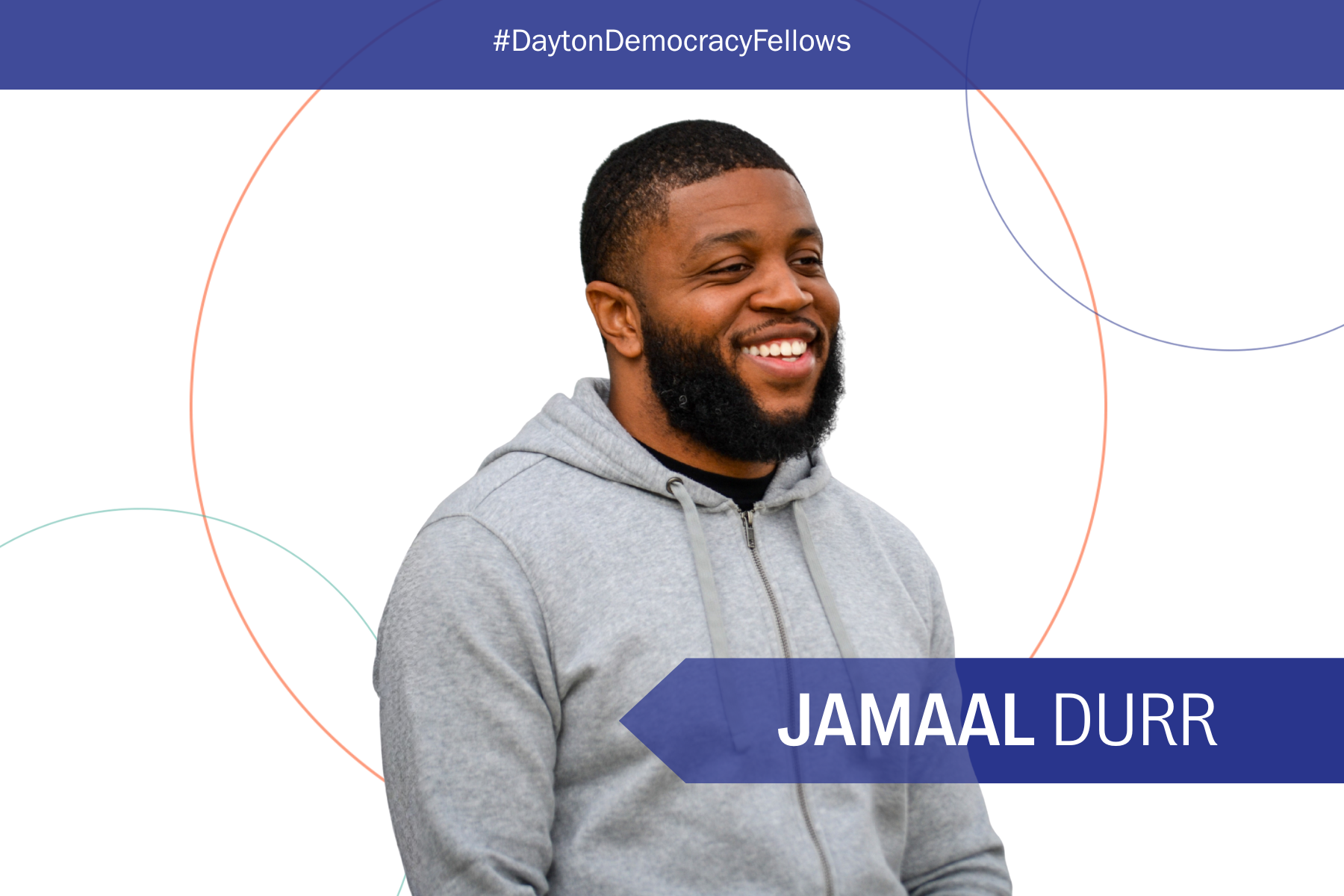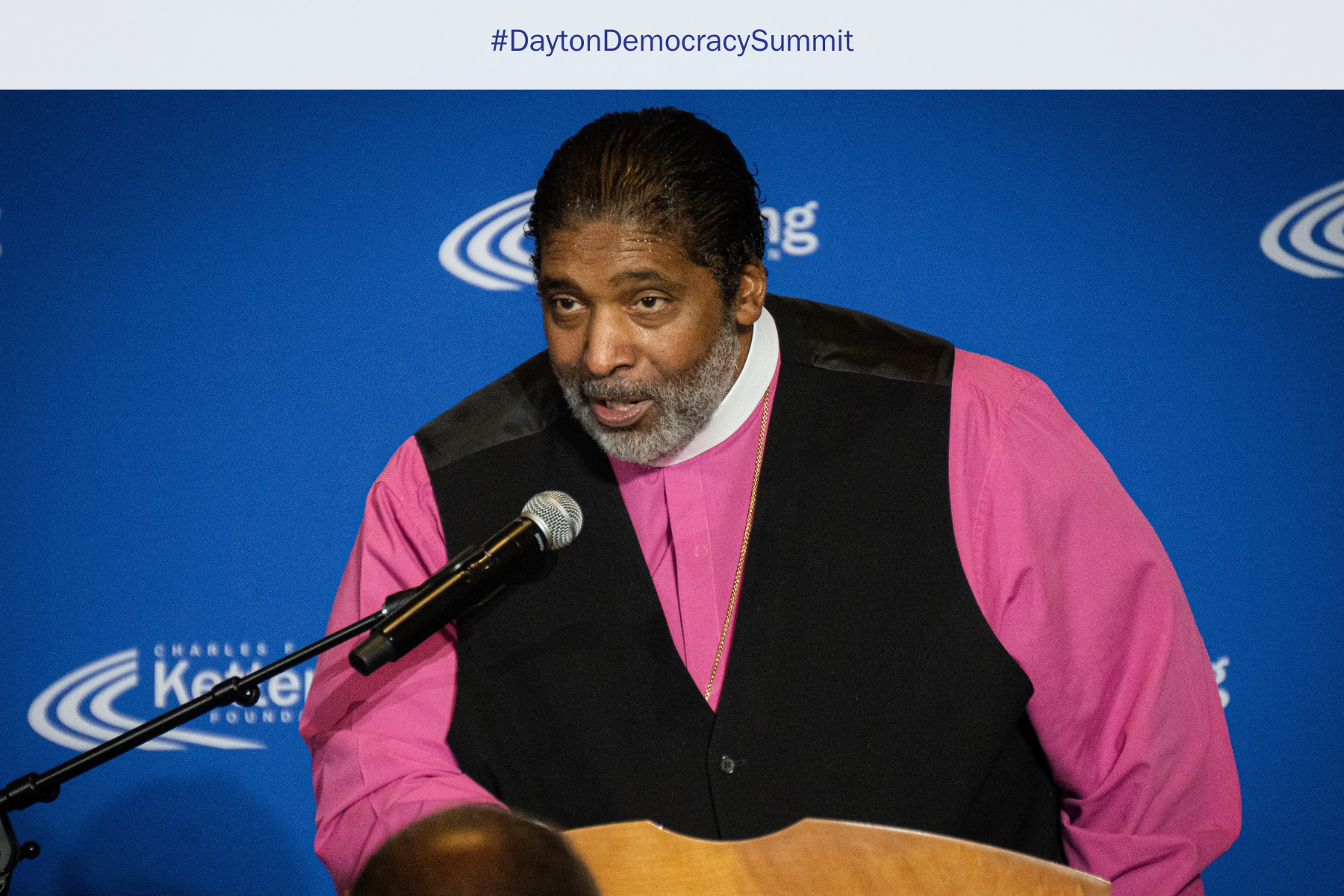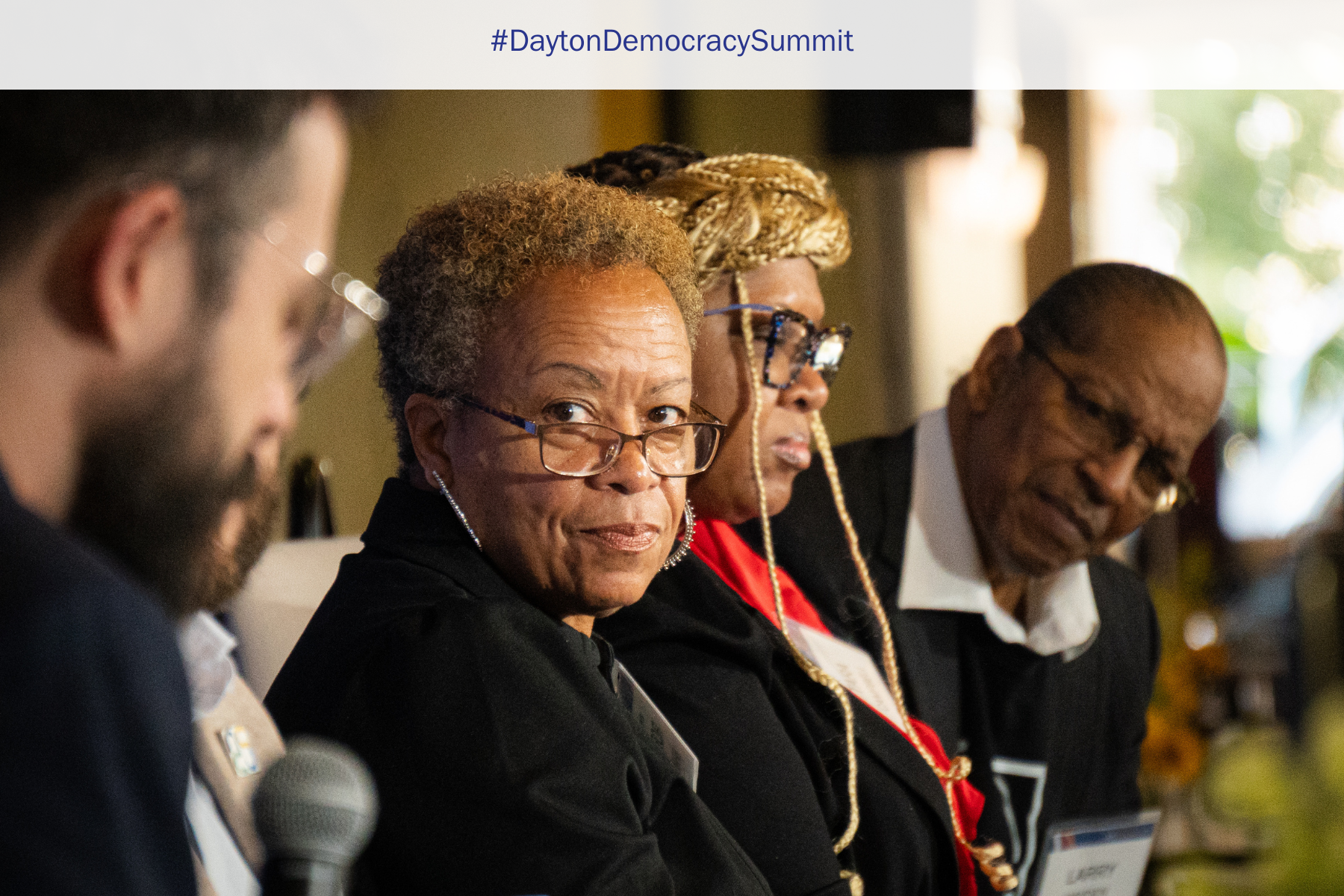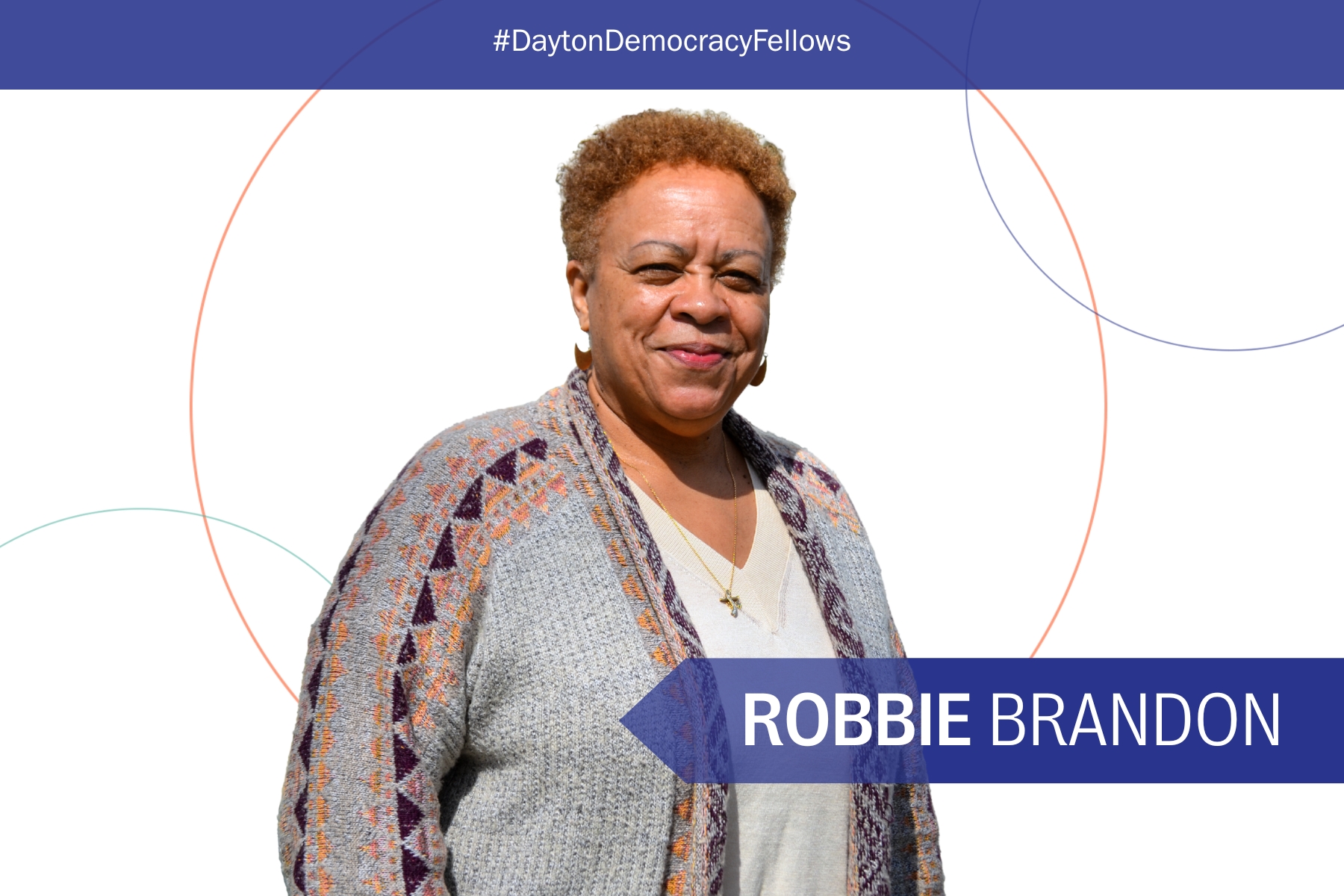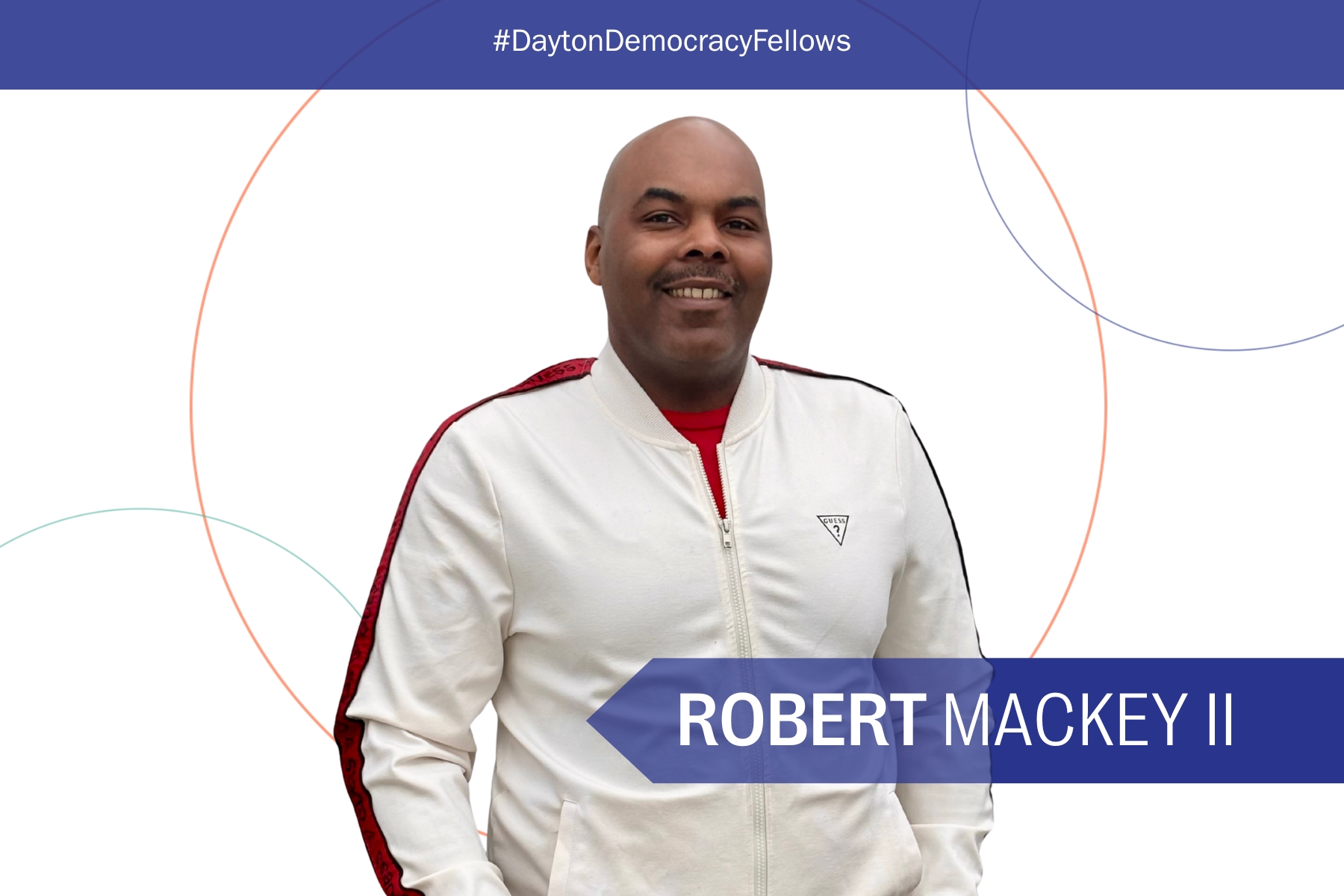Kevin O’Donnell: Teaching Democracy 101
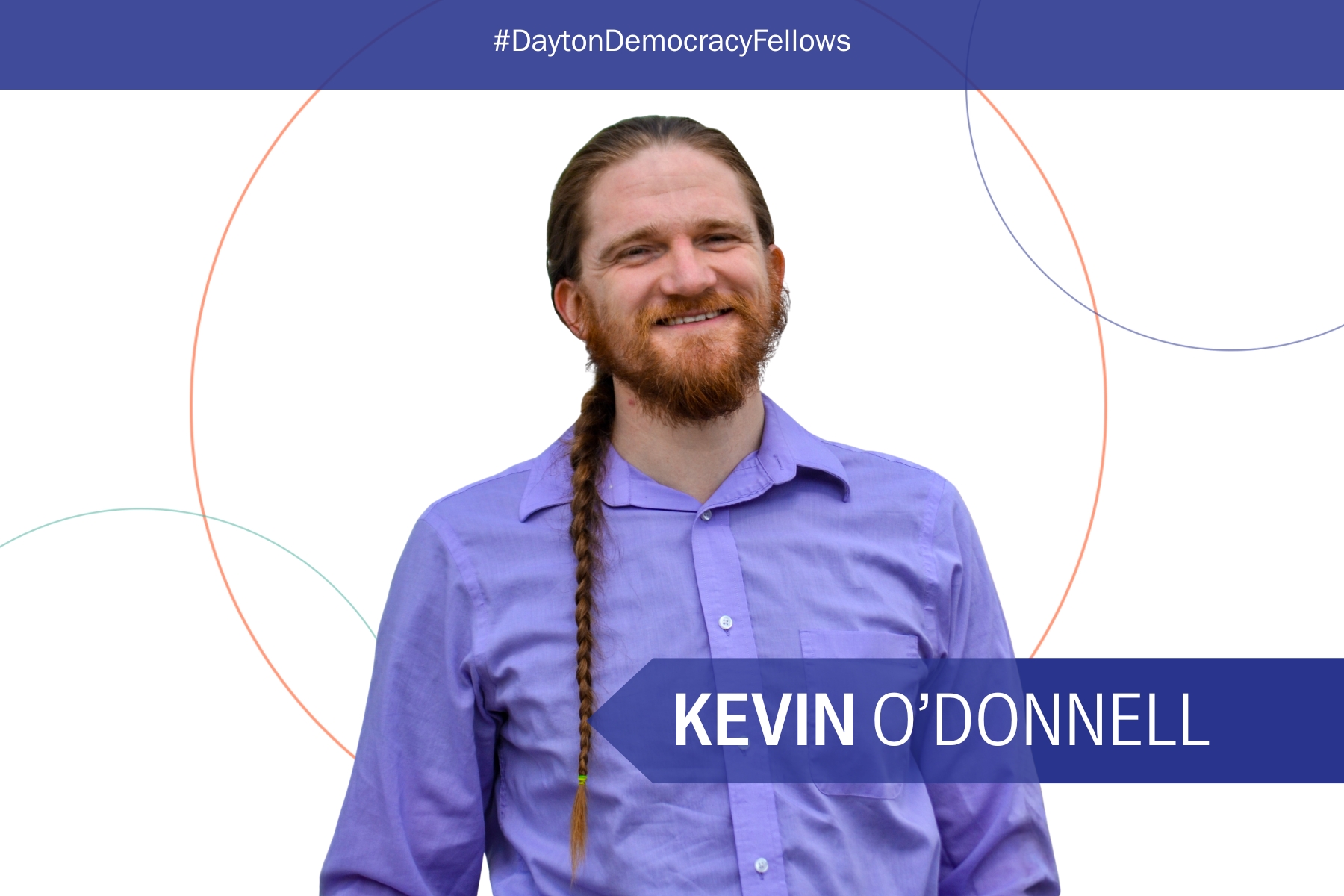
The Kettering Foundation’s Dayton Democracy Fellowship is a program that supports innovative leaders, changemakers, and dreamers who are building movements for inclusive democracy in their communities and in our wider world. This series of articles about the Dayton Democracy Fellows highlights their robust work and the powerful narratives that drive the advancement and defense of democracy.
Dayton Democracy Fellow Kevin O’Donnell can’t do his job without being immersed in democratic practices. He teaches media, government, and debate to students at Meadowdale Career Technology Center, a Dayton public high school. By the time they graduate, the students not only have discussed, researched, and debated public issues, but also have proposed, voted on, and passed their own solutions to contemporary problems in “class congress,” their classroom legislative body that meets several days a week during the school year. And the students don’t just debate one another; O’Donnell has also scheduled a debate on school policies between teachers and students. “The students get to pick the topics, but it will probably be phone policies,” he said with a smile.
During this election season, students are meeting with school board candidates and city council candidates to ask them how they would vote on the ideas passed during class congress. Their answers go into a voter guide, presented in grid format showing how each candidate would vote on those ideas, which is then made available to the community. Lessons in journalism expose students to ways they might write and portray issues about which they are exposed through the school year.
It’s an ongoing, practical experiment in Democracy 101. Throughout, the students learn to work together. “Over the course of the year, there’s a lot of space for us to work on these projects, [and] collaborate with each other,” he said. That process starts early.
The students begin the school year writing proposals for how they would like the local government to spend tax money. This year, the most common problems the students have focused on involve housing, including fixing up abandoned houses, creating more shelters, and building more affordable housing.
The choice of topics is revealing, said O’Donnell. “That tells me that this is a generation that cares about people at the bottom of society in a way that I don’t think those of us above their generation have done. They’re seeing the impacts of what, you might say, are years of neglect of people at the bottom.”
And, O’Donnell added, their solutions are workable and logical. “It’s not pie-in-the-sky ideas. It’s grounded in reality but is focused on helping people.”
During the primary election, the students provided questions for the candidates that became the basis for the Dayton Tenant Union’s voter guide. In September, they submitted questions to the Dayton Branch NAACP for its Dayton Public School Board Candidates Forum. The students’ ideas and concerns about public issues are heard not only in the Dayton area, but also at the state legislature in Columbus, where his students organize a Youth Testimony Day every year. It took place in May earlier this year, but O’Donnell is hoping that he can arrange a visit by the students earlier in the legislative session.
O’Donnell worries about the barriers to higher education his students face. The student population at school primarily comes from low-income families, he said. He has seen even the school’s former top students have to drop out of college because of the cost. “I would love to see students go on and take what they’re learning here into higher education,” he said.
On the whole, though, O’Donnell feels encouraged about the generation he teaches.
“You see the future when you’re teaching in a way that is much more evident when you’re in government class—hearing them assess the way things are now and also envision what they would like the world to be like,” he said. “I could say pretty confidently that I would want to live in a world that is designed by them, at least the way they show up in the class congress.”
Maura Casey is a former editorial writer for the New York Times and has worked with the Kettering Foundation since 2010.
